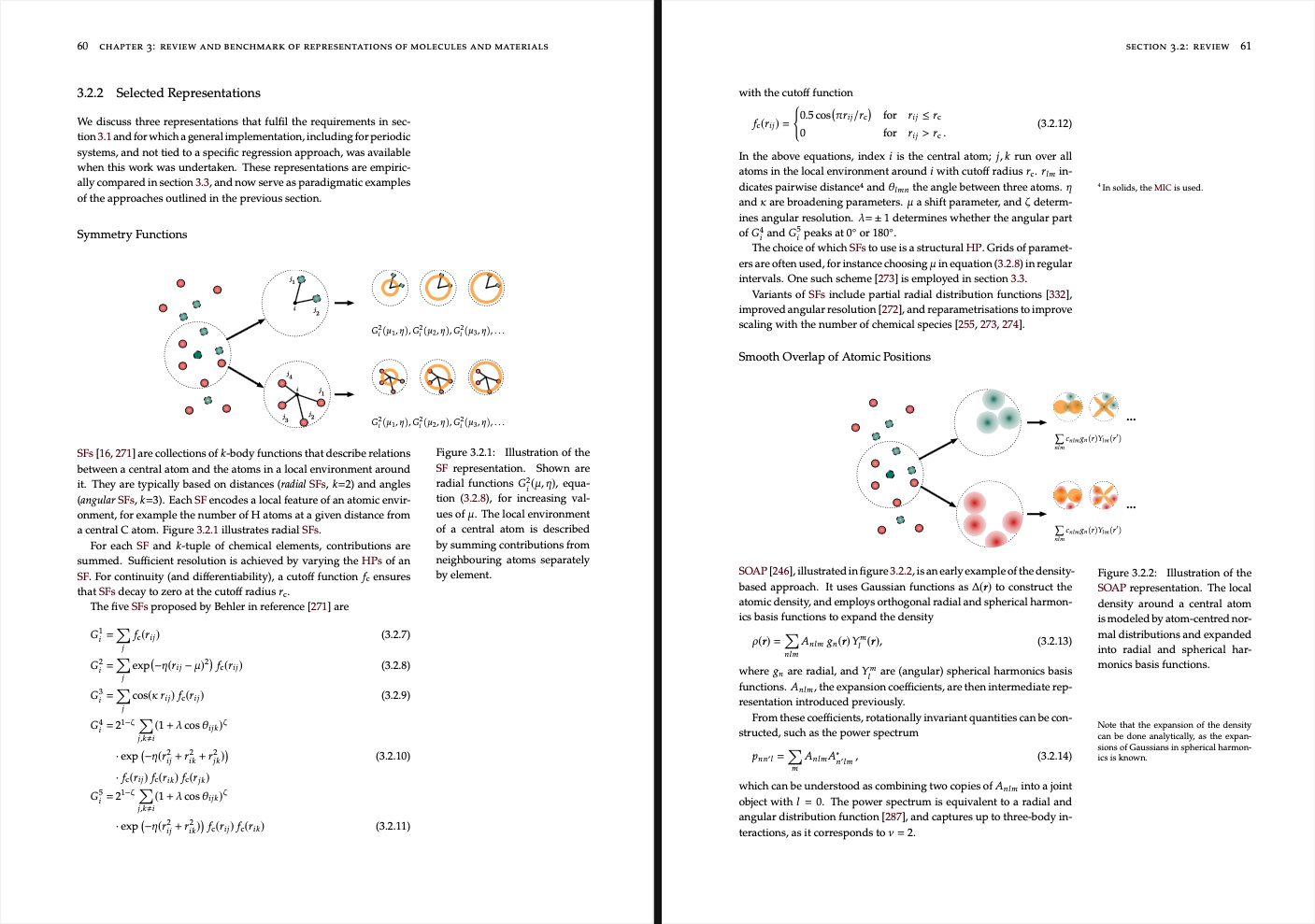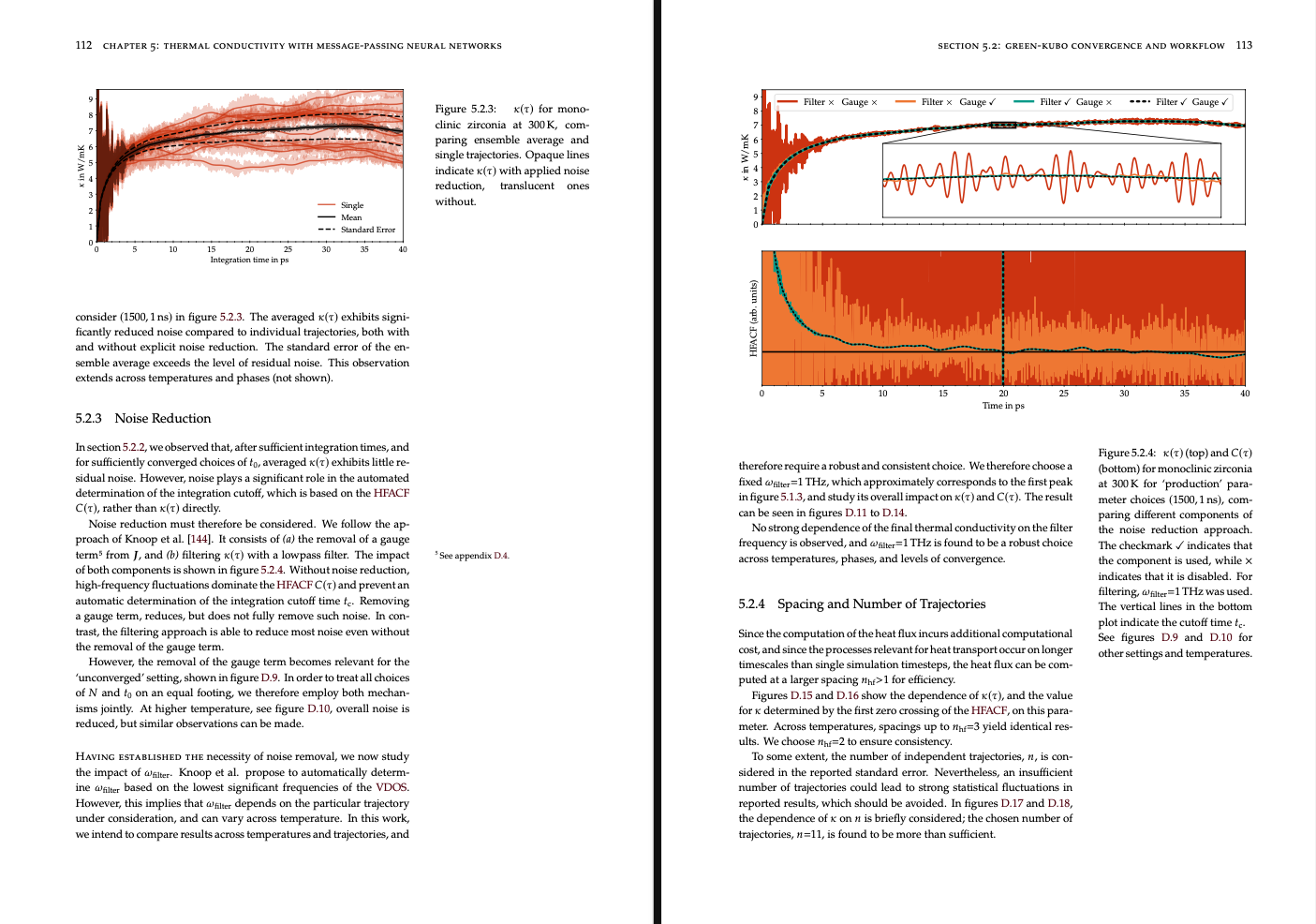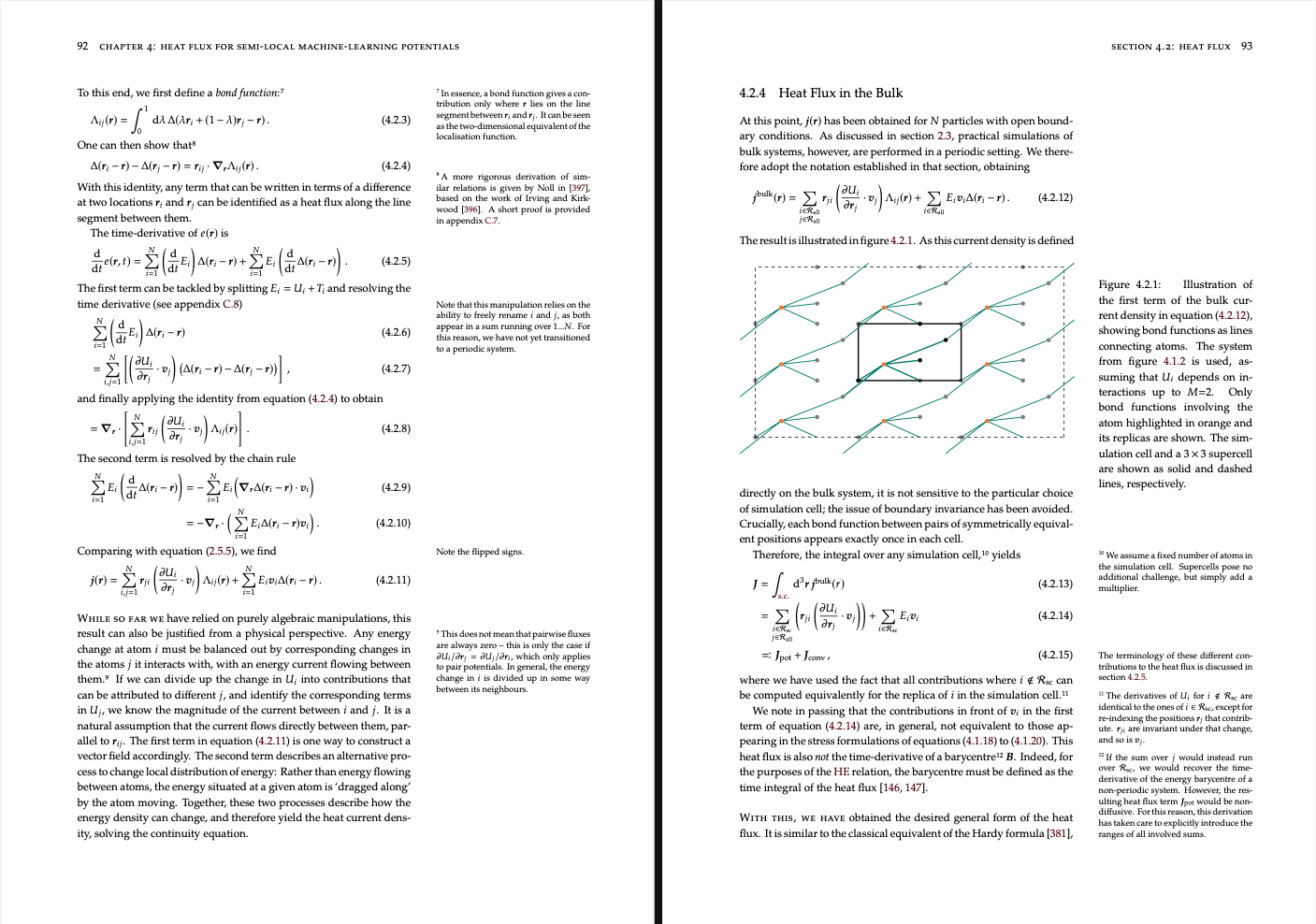marcel.science / doctor
Machine Learning for Atomistic Modeling: Representations and Thermal Transport
Hello! 👋 This website is a supplement to my dissertation, titled “Machine Learning for Atomistic Modeling: Representations and Thermal Transport”, which I successfully defended on 7th July 2023, and which was officially released on 12th September 2023. The dissertation is based on three previous projects, repbench, gknet, and glp, but contains some additional information and results, including a detailed derivation of the heat flux for arbitrary many-body potentials in the periodic case, and a careful analysis of noise removal and convergence for the Green-Kubo method.
Read
- Dissertation
v2.1(.pdf): Latest version of the dissertation. - Dissertation
v2.0(.pdf): Accepted version of the dissertation. - doi:10.14279/depositonce-18647: Official record of the dissertation in the library of Technische Universität Berlin.
Data and Code
doctor-archive: Github repository with code and data.doi:10.5281/zenodo.7963152: Zenodo archive of code and data.
Summary
Computer simulations of molecules and materials are an indispensable tool for physics, chemistry, and materials science. A wide range of methods are available for this task: On one end, first-principles electronic structure approaches, which numerically solve the Schrödinger equation, obtain high accuracy at high computational cost. On the other end, forcefields, simple analytical approximations, are fast to evaluate, but require parametrisation and an explicit model of desired physical interactions. Machine learning is increasingly used to bridge the gap between these two extremes, aiming to combine high accuracy with computational efficiency. To this end, regression models are trained on quantum-mechanical reference calculations and then used as surrogate model during simulations.
This thesis considers two topics related to such models: Representations of atomistic systems, and the application of machine-learning potentials to thermal transport simulations.
Efficient learning in this setting requires models, and therefore input features, that respect fundamental symmetries. We comprehensively review and discuss such representations and relations between them. For selected representations, we compare energy predictions for a range of datasets in numerical experiments controlled for data distribution, regression method, and hyperparameter optimisation.
The Green-Kubo method is a rigorous framework for thermal transport simulations in materials. It is based on equilibrium molecular dynamics simulations, requiring both an accurate description of the potential energy surface and careful consideration of convergence in simulation duration and size. In this context, machine-learning potentials trained with first-principles data promise the ability to reach convergence at a fraction of the computational cost. This thesis adapts the implementation of the Green-Kubo approach to the recently developed class of message-passing machine-learning potentials, which iteratively consider semi-local interactions beyond the initial interaction cutoff. We derive an adapted heat flux formulation for such potentials that can be implemented using automatic differentiation without compromising computational efficiency. The approach is validated by computing the thermal conductivity of zirconia, tin selenide, and silicon with message-passing neural networks.
Preview


